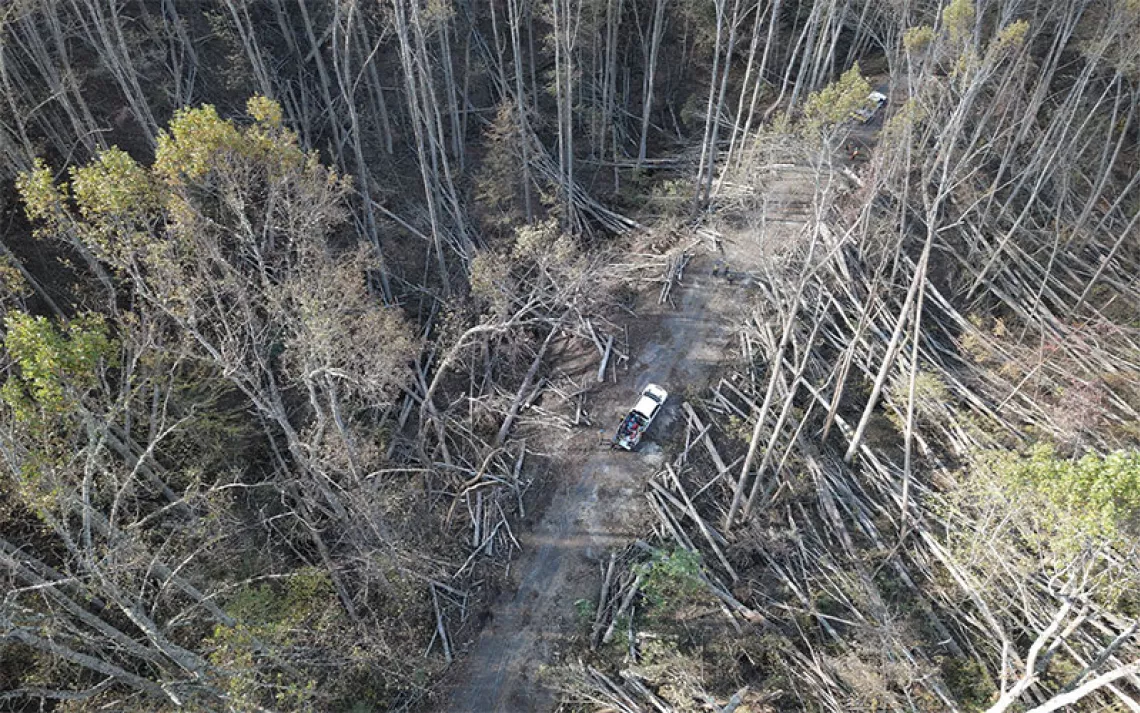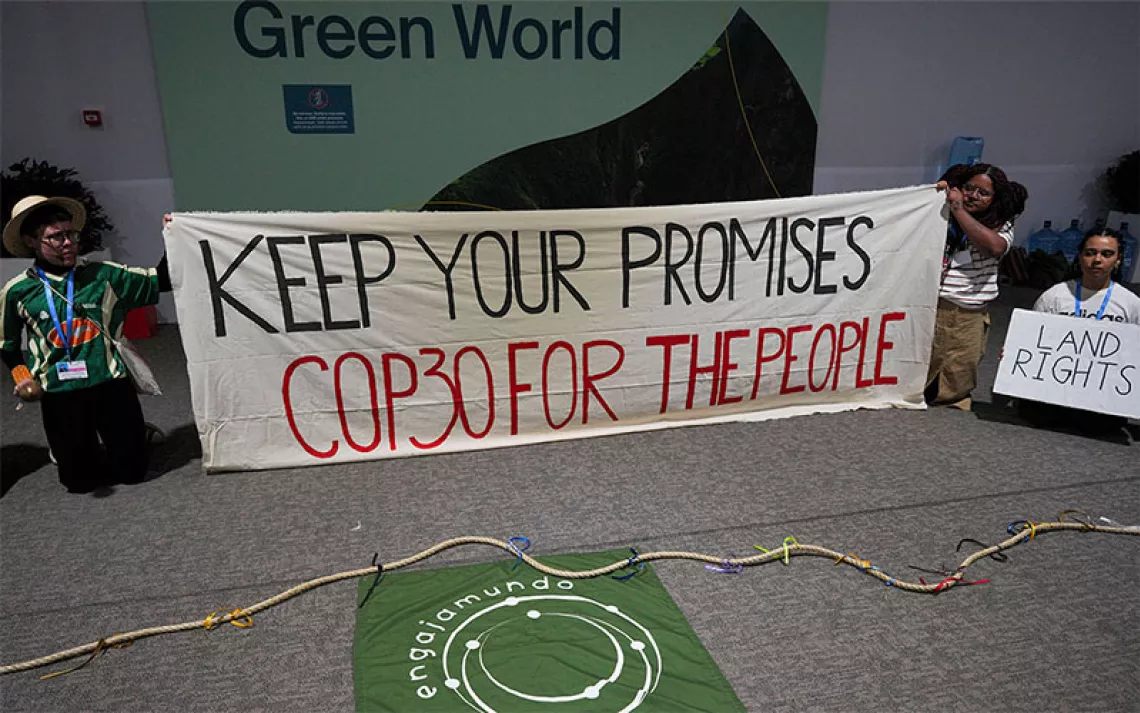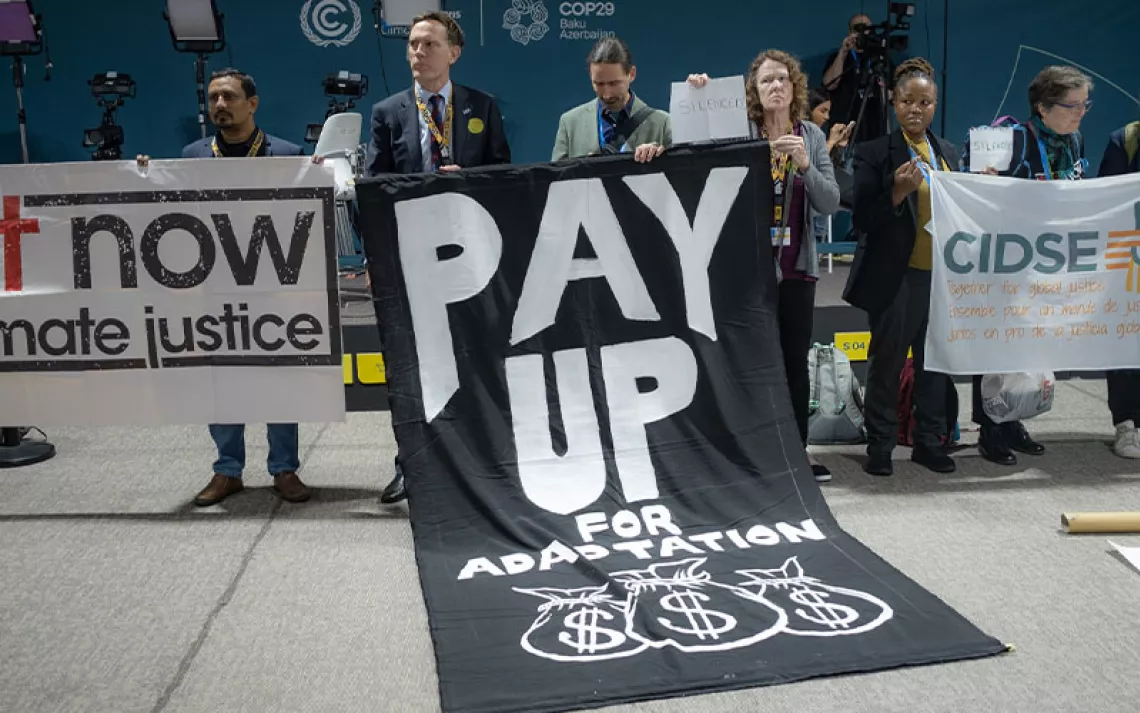On the Moral Hazards of Carbon Dioxide Removal
Sucking CO2 out of the air is essential—and fraught with perils

Illustration by Miguel Porlan
Climate change science involves a lot of math. There's a great deal of calculus, plus all those formulas and models to understand how planetary physics works. But some of the most important climate math is no more complicated than basic arithmetic. Take the remaining "carbon budget" we have to avoid catastrophic environmental changes, divide that by the volume of carbon pollution industrial society pumps into the atmosphere daily, and you get the amount of time we have left. It's not a big number. Seven years and change.
If we're going to stay within the goals of the Paris Agreement, a new process will have to enter the equation: subtraction. To keep average global temperature rise beneath 2.7°F (1.5°C), we'll have to begin deliberately removing carbon dioxide from the air. In its most recent report, released in April, the Intergovernmental Panel on Climate Change declared, "All available studies require at least some kind of carbon dioxide removal to reach net zero." The math is implacable.
As a matter of global justice and ecological solidarity, the obligations of the Paris Agreement should also be implacable. Two degrees Celsius of global warming would be a "death sentence" for island nations, Mia Mottley, the prime minister of Barbados, has warned. Temperature overshoot will also spark more environmental losses, creating all kinds of extinctions, extirpations, and biological forced migrations (see "An Ark for Amphibians").
Take the math seriously and planetary-scale carbon dioxide removal becomes unavoidable. So, then, how?
Good, old-fashioned nature is really good at taking carbon out of the atmosphere and putting it elsewhere. Nature-based solutions include the restoration of coastal seagrass and kelp, regenerative agriculture (see "Dirt First"), and protecting and expanding forests (see "The Giving Trees"). Biological drawdown strategies are a great option because they're relatively cheap and can deliver important co-benefits, like preserving biodiversity. They're also slow (trees can take a long time to grow) and may be reversed by global warming itself (trees burn).
Then there are the whizbang, high-tech solutions. The cool kid in this space is direct air capture—literally sucking CO2 out of the air. The thing that's really supposed to save our bacon is something called bioenergy with carbon capture and storage, a Rube Goldberg scheme to generate power from biomass and then capture and store all the emissions. These technologies have the advantage of being fast-acting. They are also going to be expensive, since they'll require massive new infrastructure to collect and store all that CO2 (see "Stress Test").
As senior editor Paul Rauber details in "Suck It Up," carbon dioxide removal also involves a moral hazard: The prospect of future techno fixes might provide fossil fuel interests with political cover for continued procrastination. Already, petrostates like Saudi Arabia and multinational companies like ExxonMobil are trumpeting carbon dioxide removal as a way to prolong the fossil fuel era.
If the Carbon Barons (as I like to call them) aren't able to use carbon capture and storage to extend the dying days of fossil fuels, I'm sure they'll be happy to cash in on the cleanup. With their knowledge of the geologic underworld and their expertise with pipes, who better to plumb the earth and put back the waste? Such a scenario presents another moral hazard: the possibility that the very actors who caused this crisis will get to determine the solutions. That would be a form of disaster profiteering—injustice compounding injury.
Carbon dioxide removal may be a mathematical necessity. But if we have to engage in this costly endeavor, let's at least make sure that the climate criminals don't profit from the chaos they've created. The calculus is clear: The Carbon Barons are the ones who need to pay.
This article appeared in the Summer 2022 quarterly edition with the headline "Moral Hazards Ahead."
 The Magazine of The Sierra Club
The Magazine of The Sierra Club



